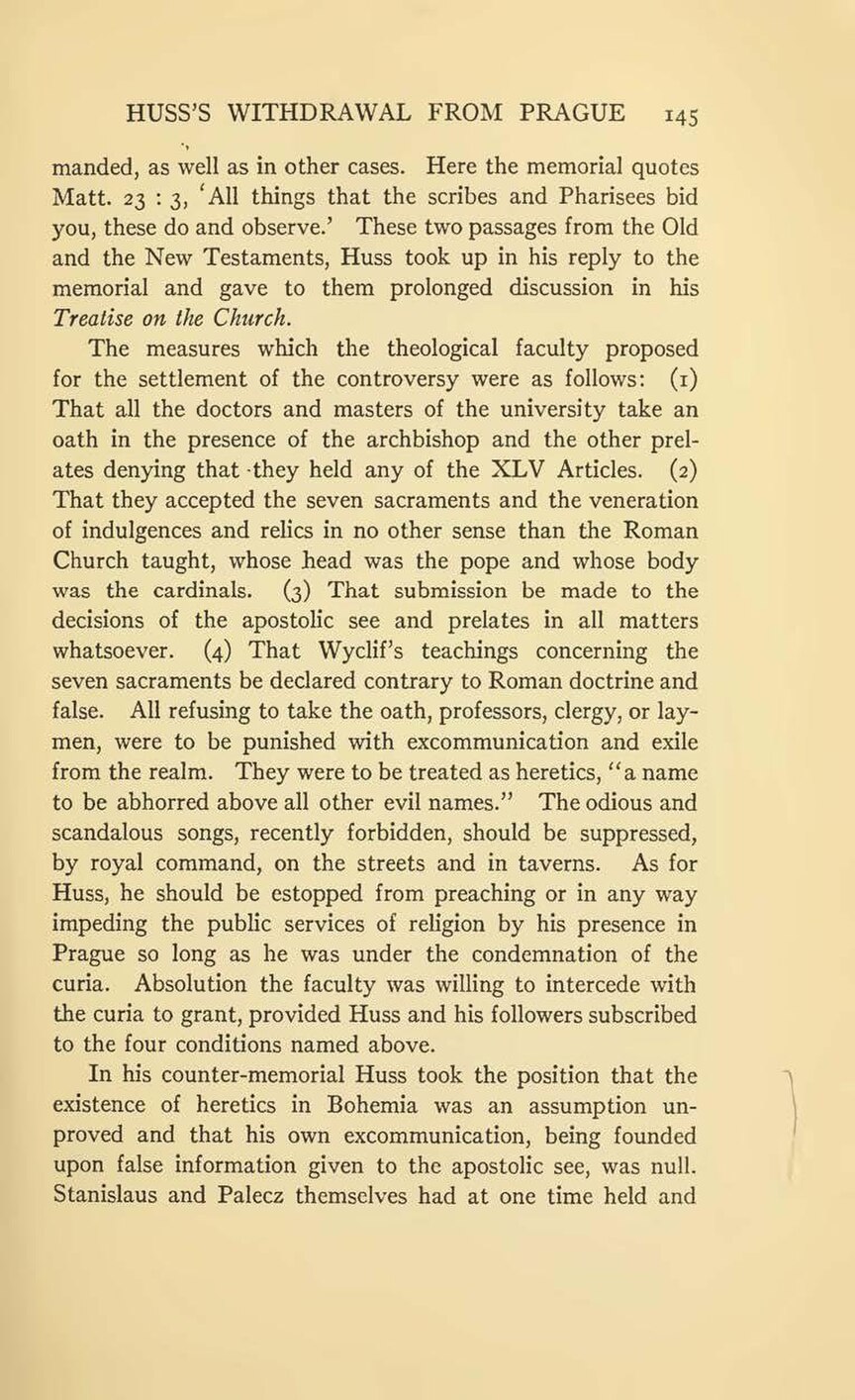manded, as well as in other cases. Here the memorial quotes Matt. 23: 3, ‘All things that the scribes and Pharisees bid you, these do and observe.’ These two passages from the Old and the New Testaments, Huss took up in his reply to the memorial and gave to them prolonged discussion in his Treatise on the Church.
The measures which the theological faculty proposed for the settlement of the controversy were as follows: (1) That all the doctors and masters of the university take an oath in the presence of the archbishop and the other prelates denying that they held any of the XLV Articles. (2) That they accepted the seven sacraments and the veneration of indulgences and relics in no other sense than the Roman Church taught, whose head was the pope and whose body was the cardinals. (3) That submission be made to the decisions of the apostolic see and prelates in all matters whatsoever. (4) That Wyclif’s teachings concerning the seven sacraments be declared contrary to Roman doctrine and false. All refusing to take the oath, professors, clergy, or laymen, were to be punished with excommunication and exile from the realm. They were to be treated as heretics, “a name to be abhorred above all other evil names.” The odious and scandalous songs, recently forbidden, should be suppressed, by royal command, on the streets and in taverns. As for Huss, he should be estopped from preaching or in any way impeding the public services of religion by his presence in Prague so long as he was under the condemnation of the curia. Absolution the faculty was willing to intercede with the curia to grant, provided Huss and his followers subscribed to the four conditions named above.
In his counter-memorial Huss took the position that the existence of heretics in Bohemia was an assumption unproved and that his own excommunication, being founded upon false information given to the apostolic see, was null. Stanislaus and Palecz themselves had at one time held and
